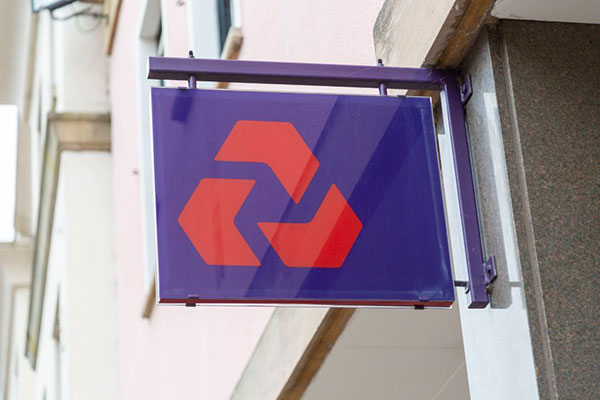NatWest Q3 results concludes banks’ reporting season
28th October 2022 09:01
by Richard Hunter from interactive investor
Enforced financial writedowns blot the copybook, but the overall strength of the balance sheet and general financial health leaves the group in an enviable position, writes Richard Hunter.

NatWest Group (LSE:NWG) has rounded off the banks’ reporting season in mixed fashion, with some enforced financial writedowns blotting the overall copybook.
The planned withdrawal from the Republic of Ireland through its Ulster Bank subsidiary has led to a charge on the mortgage book of some €420 million (£362 million). In addition, NatWest has succumbed to the necessity of making bad debt provisions in line with most of its peers. Whereas the group bucked the trend in the second quarter by releasing £18 million of provisions, for this quarter a charge of £242 million has been made. This leaves the cumulative figure for this year as a provision of £193 million, which compares to a release of £904 million in the corresponding period last year, and the £1 billion swing has affected overall numbers.
- Read about how to: Open a Trading Account | How to start Trading Stocks | Top UK shares
Indeed, net profit for the quarter of £187 million compares to a profit of £674 million last year, with pre-tax profit ahead of the corresponding period but shy of market expectations, at £1.1 billion. Revenue was in line with forecasts, coming in at £3.2 billion, up from £2.7 billion last year.
There are similar themes throughout the release to the rest of the sector. The bank has felt the need to take a conservative approach to the possibility of bad debts, even though at present there is little sign of customer behaviour switching towards default. At the same time, the underlying business excluding Ulster – the “Go-forward Group” registered an increase in income of 37%, driven by the tailwinds of increasing interest rates as well as a significant increase of £9.9 billion in lending, itself largely made possible by further strength in mortgage lending, despite recent headlines suggesting otherwise.
Elsewhere, the key metrics are in good shape. Net Interest Margin increased to 2.99% from 2.72% in the second quarter, and Net Interest Income jumped significantly to £7 billion from £2.3 billion. The capital cushion remains unchanged but comfortably robust at 14.3%, while the Liquidity Coverage Ratio is well ahead of the required level at 156%, even though the figure is marginally lower than the 159% of the previous quarter.
- Barclays’ diversity gives bank resilience in the face of adversity
- HSBC kicks off UK bank sector results
- HSBC shares: what the City thinks
- Lloyds Bank: a strong quarter reflects strength and prudent planning
The Return on Tangible Equity figure for the Go-forward Group was also strong at 12.1%, and in terms of outlook NatWest is targeting to hit a range of between 14% and 16%. In the meantime, the overall strength of the balance sheet and general financial health leaves the group in the enviable position of deciding how to deploy the capital at its disposal. The current dividend yield is attractive to income-seeking investors at 4.4%, a figure which is turbocharged to 11.2% if including the recent special dividend. At the same time, the bank intends to continue this elevated level of returns while not discounting further share buybacks or even acquisition opportunities should they arise. Coupled with the intention further to reduce the government stake of 48%, there is much demand on the bank’s capital, which it is comfortably able to provide at these levels.
The remaining government stake is something of an overhang for the shares, although the commitment to continue to whittle it down further is already declared. The economic outlook in the UK, which is likely to deteriorate from an already likely recessionary environment, will put more pressure on the banks’ customers, for both individuals and companies alike.
However, in terms of the share price, the bank’s considerable strength has enabled it to weather the storm more favourably than most of its peers. Prior to today, the shares had fallen just 1% over the last year, as compared to a decline of around 2.5% for the wider FTSE 100, and the last six months had seen a tentative recovery. Wider market weakness at the open and an unforgiving attitude to banks missing expectations has weighed heavily on the shares in early exchanges, but for the longer term the shares remain the preferred play in the sector, with the market consensus still coming in at a strong buy.
These articles are provided for information purposes only. Occasionally, an opinion about whether to buy or sell a specific investment may be provided by third parties. The content is not intended to be a personal recommendation to buy or sell any financial instrument or product, or to adopt any investment strategy as it is not provided based on an assessment of your investing knowledge and experience, your financial situation or your investment objectives. The value of your investments, and the income derived from them, may go down as well as up. You may not get back all the money that you invest. The investments referred to in this article may not be suitable for all investors, and if in doubt, an investor should seek advice from a qualified investment adviser.
Full performance can be found on the company or index summary page on the interactive investor website. Simply click on the company's or index name highlighted in the article.